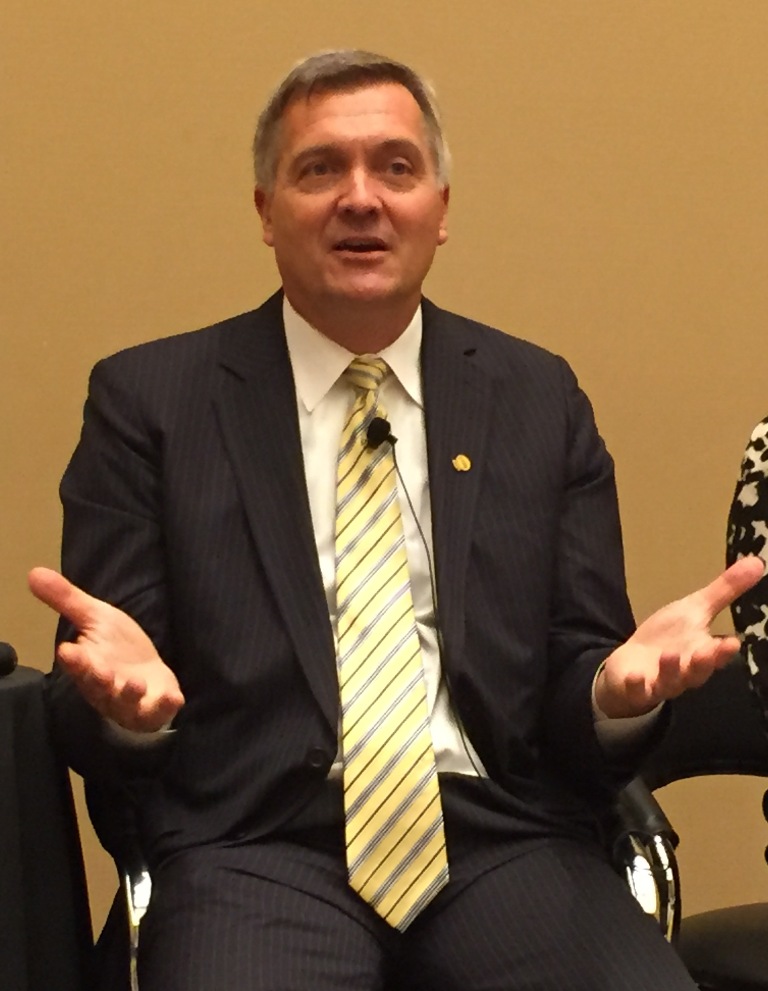Electrification is crucial to improving quality of life in the poorest parts of the world, but those efforts must go beyond poles and wires, NRECA CEO Jim Matheson told the U.S. Global Leadership Coalition State Leaders Summit in Washington, D.C.

“Electricity is fundamental. It creates better health outcomes, better economic opportunities, better education opportunities. That’s something that is tried and true. The relationship between electricity and quality of life holds true over the course of decades,” Matheson told the national gathering of leaders in global development.
During a June 13 panel on Driving Development in Africa, he noted that NRECA International has brought electricity to some 43 million people in 126 countries since its founding in 1962. And, as Matheson put it, the organization has learned, “It’s not enough to just go and build infrastructure.”
“You need to create something that can be sustained, and that effort includes creating mechanisms to maintain and operate the system over time—governance rules, operating systems, the capacity of the workforce to maintain the system,” said Matheson.
Enter the electric cooperative business model that’s served the U.S. for 80 years.
“When the community owns an asset it’s invested in that asset. We’ve found it to be a very powerful model,” said Matheson.
Still, he said that every nation has its own characteristics that present unique challenges.
“For each project, we’ve got to figure out how the pieces fit together. What is the level of interest and the specific approach of the government? What are the partnership opportunities? Where does the power supply come from?”
Matheson noted that, of the 1.2 billion people in the world without access to electricity, half are in Africa.
“If we really want to make a difference in terms of giving people the crucial opportunity to participate in the modern world, it really starts with access to electricity,” Matheson said. “That’s the primary building block for most every other development effort to have success.”
Michael W. Kahn is a staff writer at NRECA.